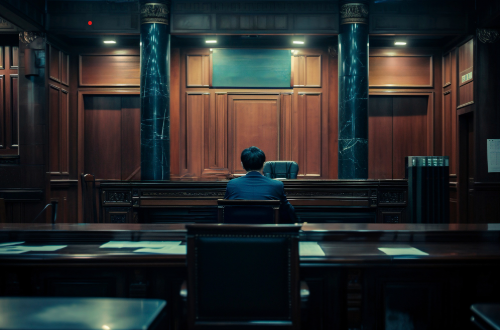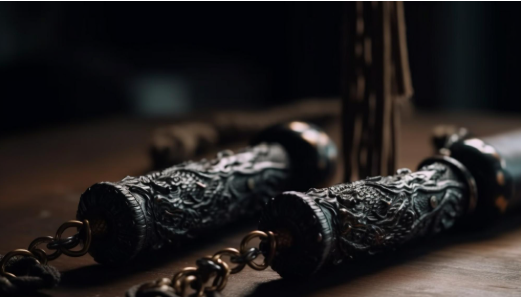Quick Summary
Defamation of character occurs when a false statement is communicated to others, causing harm to an individual’s reputation. Nigerian law recognizes both slander (spoken) and libel (written or published) as actionable wrongs. Victims may seek compensation in civil court, or offenders may face imprisonment under the Penal or Criminal Codes.

A Real-Life Scenario
Picture this: you wake up one morning to see a viral WhatsApp broadcast claiming you were dismissed from your job for fraud. Within hours, neighbors whisper, business partners pull back, and your name trends online for the wrong reasons. The allegation is false, but the damage to your reputation is immediate and devastating.
This is a classic example of defamation of character. In Nigeria, the law recognizes reputation as a valuable asset and provides clear remedies for its protection.
What is Defamation of Character?
Defamation of character is any false statement, published to a third party, that injures another person’s reputation in the eyes of reasonable members of society.
Types of defamation:
- Libel – Defamation in permanent form: newspapers, blogs, tweets, Facebook posts, photographs, TV broadcasts.
- Slander – Defamation in transient form: spoken words, gestures, speeches, or conversations.
For a claim to succeed in court, the claimant must prove:
- A false statement was made.
- It was published to someone else besides the claimant.
- The statement clearly referred to the claimant.
- It caused injury to reputation (loss of respect, credibility, business).
But not every unflattering statement counts as defamation. The law allows some defences, such as:
- Truth (Justification): If the statement is true, it cannot be defamatory.
- Fair Comment: Honest opinions on matters of public interest are protected.
- Privilege: Statements made in parliament, courts, or by certain public officials may be protected.]
If you are actually defamed and seek to claim respite here are incidents which affect how much you can claim
How Much Can I Claim for Defamation of Character in Nigeria?

There is no fixed sum; damages depend on the circumstances. Courts consider:
- The nature of the allegation – Criminal, immoral, or dishonest conduct attracts heavier damages.
- Extent of publication – A front-page newspaper headline is more serious than a private conversation.
- Actual harm – Such as business losses or suspension from work.
- Defendant’s intent – Malice or reckless disregard may lead to aggravated damages.
Example: In Punch (Nig) Ltd v. Jibowu, damages were awarded because a publication falsely implied dishonesty, injuring the claimant’s professional standing.
Claims can range from hundreds of thousands to millions of naira, depending on the reach and impact.
How to Sue for Defamation of Character in Nigeria
Got Defamed? Here are steps to take immediately
- Consult a Lawyer – Expertise in tort and media law is critical.
- Gather Evidence – Save screenshots, printouts, recordings, or witness statements.
- Demand Letter – Many lawyers first send a pre-action notice asking for retraction, apology, and compensation.
- File a Civil Suit – At the High Court, if settlement fails.
- Prove the Elements – Falsehood, publication, reference, injury to reputation.
Civil vs Criminal:
- Civil claims aim at damages and apology.
- Criminal charges (under Penal/Criminal Code) may lead to fines or imprisonment.
Defamation of Character Punishment

In Nigeria defamation of character is approached from stances depending on its impact.
Civil Defamation: The most common route. This usually applies when the victim chooses to take private legal action to seek compensation for harm to reputation.
Criminal Defamation however applies when the defamatory act is considered serious enough to threaten public peace or order. For instance, publications that could incite violence, unrest, or severe public outrage may lead the state (through the police or prosecution) to pursue criminal charges, independent of the victim’s civil lawsuit.
what’s applicable
- Civil Defamation: Payment of damages + possible court order for apology or retraction.
- Criminal Defamation: Section 391 of the Penal Code prescribes up to 2 years’ imprisonment, a fine, or both. The Criminal Code (Sections 373-381) provides similar sanctions in the South.
Defamation of Character on Digital Platforms
Social media has amplified defamation in Nigeria. A single tweet, Facebook post, or WhatsApp broadcast can ruin reputations overnight. Nigerian courts now treat online posts the same way as traditional publications.
Notable Examples: In Okocha v. Punch Newspapers, libel was established through newspaper and online reports claiming mismanagement of funds by the footballer.
The court ruled it was defamatory and ordered compensation showing that digital publications fall squarely under libel.
Practical tip: If you’re defamed online, immediately screenshot the post, save the link, and note the date/time, as digital content can be deleted quickly.
Defamation in the Workplace
Workplace rumors can also amount to defamation. False allegations of theft, incompetence, or fraud spread by colleagues may justify a lawsuit if they damage your career. Employers may also be vicariously liable if defamatory statements were made by employees in the course of employment.
Notable examples:In 2024, the National Industrial Court ruled in favour of Engr. Chibuzor Agulana against the DG of PRODA, who had issued a dismissal letter accusing him of criminal misconduct and displayed it publicly at work. The court held the letter was defamatory, awarded ₦20 million in damages, ordered apologies in national newspapers, and placed a perpetual injunction against further defamatory acts.
Defamation of Character Under the Penal & Criminal Codes
- Penal Code (Northern Nigeria): Section 391 criminalizes defamation with imprisonment up to 2 years.
- Criminal Code (Southern Nigeria): Sections 373–381 cover libel, slander, and related offences.
Both codes provide defences where statements are made in good faith, under privileged circumstances (e.g., court proceedings), or where they are true.
Law of Defamation in Nigeria
The Nigerian legal framework balances freedom of expression & Right to Reputation.
- Freedom of Expression (Section 39, 1999 Constitution)
- Right to Reputation (protected under tort and criminal law).
The Nigerian legal framework carefully balances these two important interests.
On one hand, freedom of expression is guaranteed under Section 39 of the 1999 Constitution, allowing individuals and the press to express opinions without undue restraint.
On the other hand, the right to reputation is equally protected under both tort law (civil defamation) and criminal law provisions in the Penal Code (Section 391) and the Criminal Code (Sections 373–381).
Nigerian courts have consistently emphasized that while free speech is a cornerstone of democracy, it cannot be exercised recklessly to destroy another’s good name. This balance is reflected in case law, where courts weigh public interest against harm to reputation.
Statute of Limitations
In Nigeria, defamation claims are generally subject to a six-year limitation period under the Limitation Act and equivalent state laws. This means you must file your case within six years of the defamatory publication.
FAQs on Defamation of Character in Nigeria

- Can I sue for defamation on social media?
Yes. Posts on Facebook, Twitter, WhatsApp, or blogs are treated as publications under libel law. - What is the punishment for defamation of character in Nigeria?
Civil damages may be awarded, while criminal defamation may attract fines or up to two years’ imprisonment. - How long do I have to file a defamation claim in Nigeria?
The limitation period is usually six years from the date of publication. - What is the difference between libel and slander?
Libel is defamation in permanent form (written, published, digital), while slander is spoken or temporary.
Claim Respite For Defamation of Character The Right way

Reputation remains a priceless asset protected globally.
Defamation laws in Nigeria and globally exist to claim respite for damages to this priceless asset.
From social media defamation to workplace rumors and false newspaper reports, the law allows victims to claim damages and, in some cases, ensures offenders face criminal penalties.
Centill Attorneys stands at the forefront equipped with years of experience in defending public interest which includes your reputation.
We understand the landscape, the effort for building a reputation and the damages affect you perpetually.
If your name has been unfairly tarnished, don’t stay silent. Seek legal advice promptly and take steps to protect your reputation.